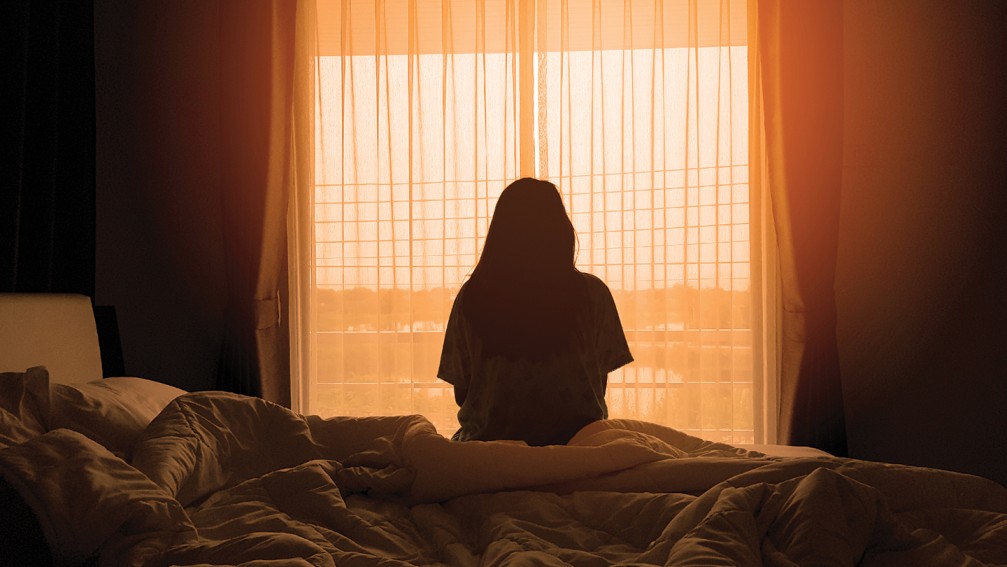Mental Health
Alone and at Risk: The Hidden Health Toll of Loneliness
It’s not just in your head; chronic loneliness increases your risk of stroke, heart disease, and even infections. Here’s how a silent emotional pain becomes a full-body threat.

Imagine spending long stretches of time alone, not necessarily sad, just disconnected. You scroll through your phone, not really looking for anything, just passing the time. That quiet sense of isolation? It’s not just in your head. You might wonder, “Can loneliness really affect my physical health?” The short answer: yes. And the effects go deeper than you'd expect.
Emotional Pain, Physical Damage
I once told a friend over coffee. “Did you know loneliness is as harmful as smoking 15 cigarettes a day?” She was shocked. So was I when I first read about it in a report by the U.S. Surgeon General (2023), which states chronic loneliness increases the risk of premature death by as much as 26-29 per cent. That’s on par with smoking, obesity, and physical inactivity.
Loneliness is a chronic stressor. Your body doesn’t distinguish emotional isolation from danger. When you are lonely, it flips into survival mode. Heart racing, cortisol rising, blood pressure climbing day after day. It’s like revving an engine with no breaks.
Related story: Ways to Prevent Stroke
The Cardiac Cost of Loneliness
We say ‘broken heart’ metaphorically. But it turns out, there’s a real link between loneliness and heart trouble. A 2016 analysis in the journal Heart involving over 180,000 people found that loneliness and social isolation increased the risk of coronary heart disease by 29 per cent and stroke by 32 per cent. And it gets more striking. Harvard researchers followed adults over 50 for a decade (2024). Those who felt persistently lonely had a 56 per cent higher risk of stroke. Temporary loneliness? No measurable impact. It’s the chronic, long-term kind that wears you down.
Why? When we feel isolated, we tend to eat worse, move less, and rely more on smoking or alcohol. But even after accounting for those habits, loneliness itself remains a toxic stressor. Elevated cortisol, higher blood pressure, and damaged vessels.
Related story: Lifestyle Changes to Keep Your Heart Healthy
Your Immune System Feels It Too
Can loneliness make you more likely to get sick? Absolutely. Your body, sensing it’s ‘on its own,’ raises stress alarms. Chronic inflammation kicks in, a kind of overactive defence system that tires itself out. In a classic experiment (JAMA,1997), volunteers were exposed to a cold virus. Those with rich social networks were four times less likely to catch the cold than those who were socially isolated. They even produced less mucus.
According to The Lancet Public Health (2023), people who felt lonely had a 12 per cent higher risk of developing severe enough infections to require hospitalisation. Feeling alone, not just living alone, was the trigger.
Related story: Stress Does Cause Premature Immune Ageing
Why Is Our Body Wired This Way?
Because for most of human history, being alone meant being vulnerable. Evolution trained our bodies to panic when isolated. A 2025 Nature Human Behaviour study from Cambridge and Fudan Universities studied the blood of over 42,000 people. They found that loneliness increased levels of certain proteins, like ADN and ASGR1, linked to stress, inflammation, cholesterol, and even lowered oxytocin (the love hormone).
Related story: What to Eat for a Healthy Heart
What Can We Do?
Thankfully, unlike some health risks, loneliness is treatable. You can:
- Call a friend or visit family
- Join a club, hobby group, or volunteer
- Even short interactions (like chatting with your neighbour) help
And the science backs it up. Social connection reduces inflammation, protects your heart, and boosts your immune system. A friendly message or a shared walk isn’t just nice, it’s biological medicine.
Related story: Signs That Show You’re Feeling Lonely
Loneliness isn’t weakness. It’s a signal, like hunger or thirst. It tells us we need connection. Ignoring it doesn’t make it go away. But responding to it can change your life and maybe save it. So if you are feeling alone, please reach out. And if someone comes to mind right now, send them a message. You never know whose life or heart you are helping.
Regular health checks are essential for everyone, but they are particularly important for individuals who already feel lonely. Taking regular health checks can help detect if loneliness is a threat to your body at an early stage, when it is easier to manage and treat. With the UR.Life HRA, we help you to invest in your well-being through seamless interventions and targeted medical treatments. Our holistic wellness approach caters to all aspects of your well-being. We ensure that you can bring your whole self to work.
With our medical professionals by your side, routine health check-ups will never be an issue. Advanced laboratory technologies back UR.Life’s Occupational Health Centers (OHC), and with highly qualified experts/technicians, we’re committed to delivering trusted and quality recommendations, modifications and advice to you.
EXPLORE MORE
Perfection is overrated. Tiny, consistent wins, the kind you barely notice, are what actually strengthen resilience and improve your mental health.
If your calendar is packed but your mind feels scattered, it’s time to schedule days that not only keep you busy but also keep you balanced. Here are five kinds of days worth protecting, every single month.
How the unholy trinity of stress, sleep loss, and sugar is quietly rewriting India’s health story.
Quick, smart, and easy to apply moves you can do when panic looms, turn the ‘Oh no’ into ‘okay, I got this!’








.jpg)
.jpg)


